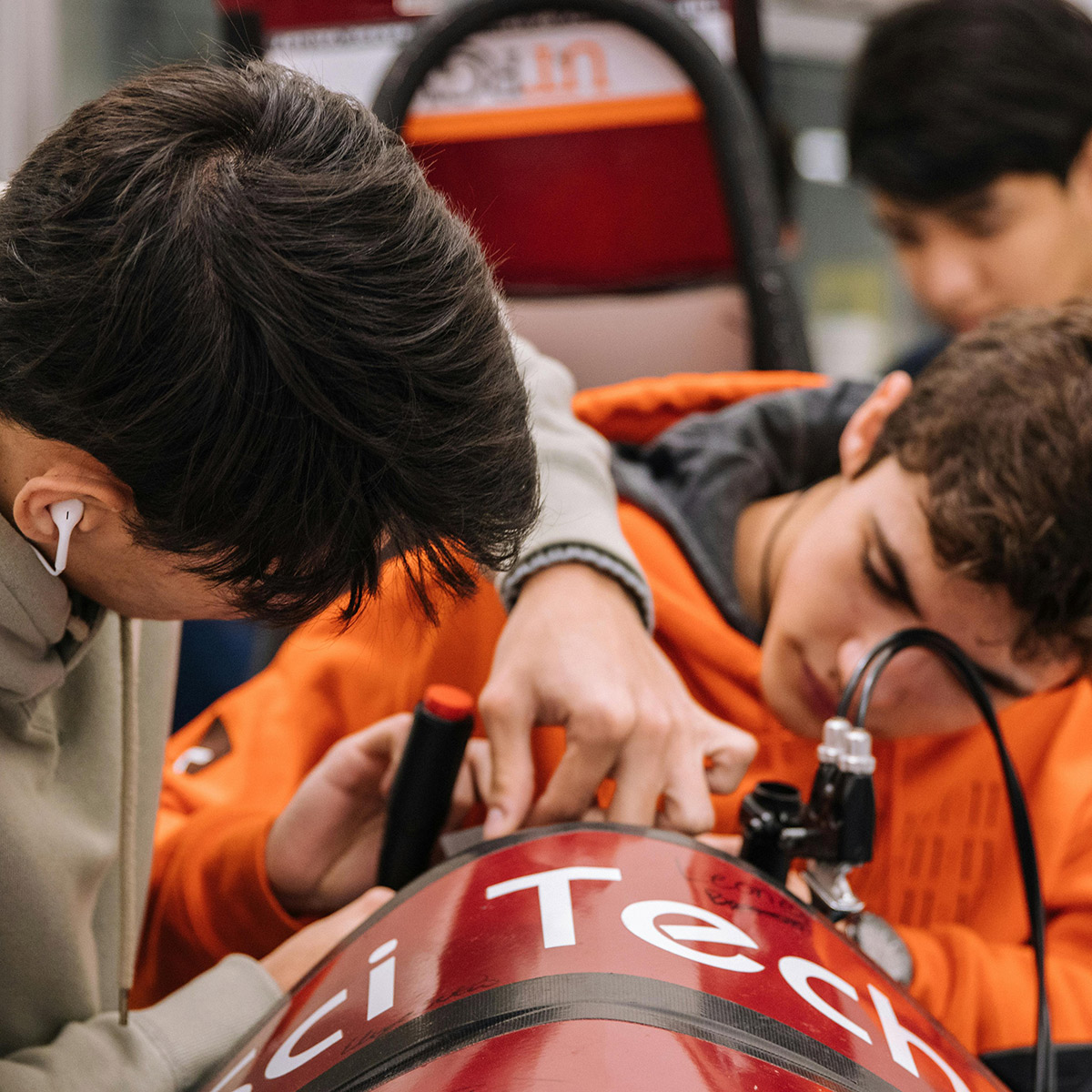
Vocational qualifications like BTECs, NVQ’s and HTQ’s are another pathway for students post-16.
These qualifications emphasise practical skills and hands-on learning, making them highly valuable in the job market. Vocational qualifications are particularly preferred by employers in sectors such as health and social care, business, and engineering.
These qualifications offer flexible learning options that can be tailored to the specific needs of industries, ensuring students are well-prepared for employment. They all include an element of practical work experience.
The Labour Government are introducing new qualifications called V-Levels (A-Level equivalent) from 2027. They are being introduced in the UK to simplify post-16 education and provide clearer pathways for students. You will start seeing them listed in Colleges’ Prospectus soon and you can find out more about them using the link at the end of this page.
BTECs (Business and Technology Education Council)
BTECs are vocational qualifications that are more practical and work-related compared to traditional academic courses. They are recognised in many sectors and can be taken alongside or instead of GCSEs and A-levels.
They range from entry-level to Level 7 (equivalent to a postgraduate degree). The most common BTECs are Level 2 (GCSE equivalent) and Level 3 (A-level equivalent).
Assessment combines practical projects, assignments, and sometimes exams and focuses on continuous assessment rather than final exams.
NVQs (National Vocational Qualifications)
NVQs are work-based qualifications that demonstrate a person’s ability to perform a job effectively. They are tailored to specific job roles and are recognised by employers across various industries.
They range from Level 1 (basic work activities) to Level 7 (senior management). Assessment is based on competency in the workplace where learners compile a portfolio of evidence showing they meet the required standards. This is often supplemented by observations from assessors.
NVQ’s have been phased out (but are still recognised by employers), they have been restructured and are now offered under the RQF (Regulated Qualifications Framework) which includes qualifications such as Awards, Certificates and Diplomas – all similar to NVQ’s.
HTQs (Higher Technical Qualifications)
HTQ’s are new vocational qualifications designed to meet employer needs and fill higher-level technical skill gaps. They are part of the UK government’s plan to improve technical education.
They focus primarily on Level 4 and Level 5 qualifications, which are equivalent to the first two years of a bachelor’s degree.
Assessment combines theoretical study with practical skills development and can include projects, assignments, and practical exams.
Other GCSE equivalent options
What new options are being introduced at Level 2 (GCSE equivalent) from 2027?
Two new pathways are being created (from 2027) to better support students at Level 2 — the level broadly equivalent to GCSEs. These pathways will support those aged 16-18, providing clear route that matches their aspirations, whether that is work or moving into further study:
The Occupational Pathway – for those who want to develop the skills and experience needed to move straight into a skilled job or apprenticeship after Level 2. This two-year, employment-focused programme will give students training designed around real jobs and industries, helping them become work-ready and confident about starting in work.
The Further Study Pathway – for students who plan to continue in education and progress onto Level 3 courses like A levels, T Levels, or V levels, but who may need more time to prepare, building confidence and strengthening their skills first. This pathway will bridge the gap to higher-level study, helping students prepare for their next step in education.
These changes will ensure every young person has a route that’s right for them, whether they’re aiming for work, higher education, or further study. We recognise that there may be circumstances as well where students wish to transfer between the pathways and we will consider how best we can support that.
Useful links:
- https://www.skillsforcareers.education.gov.uk/pages/training-choice/vtq-vocational-technical-qualification
- What are QCF, NVQ, and RQF Qualifications? What’s the Difference? – Association of Learning
- Higher Technical Qualifications (HTQs) – Amazing Apprenticeships
- New V levels and post-16 qualifications explained – The Education Hub
